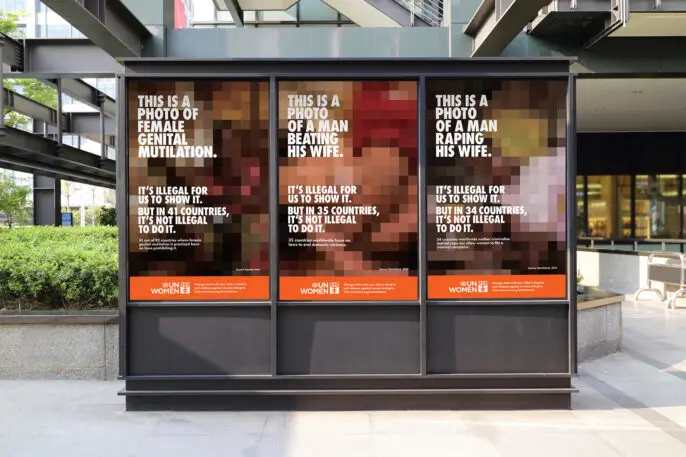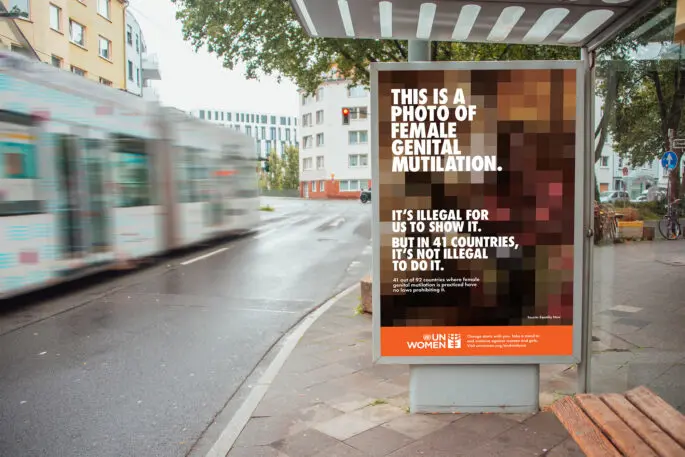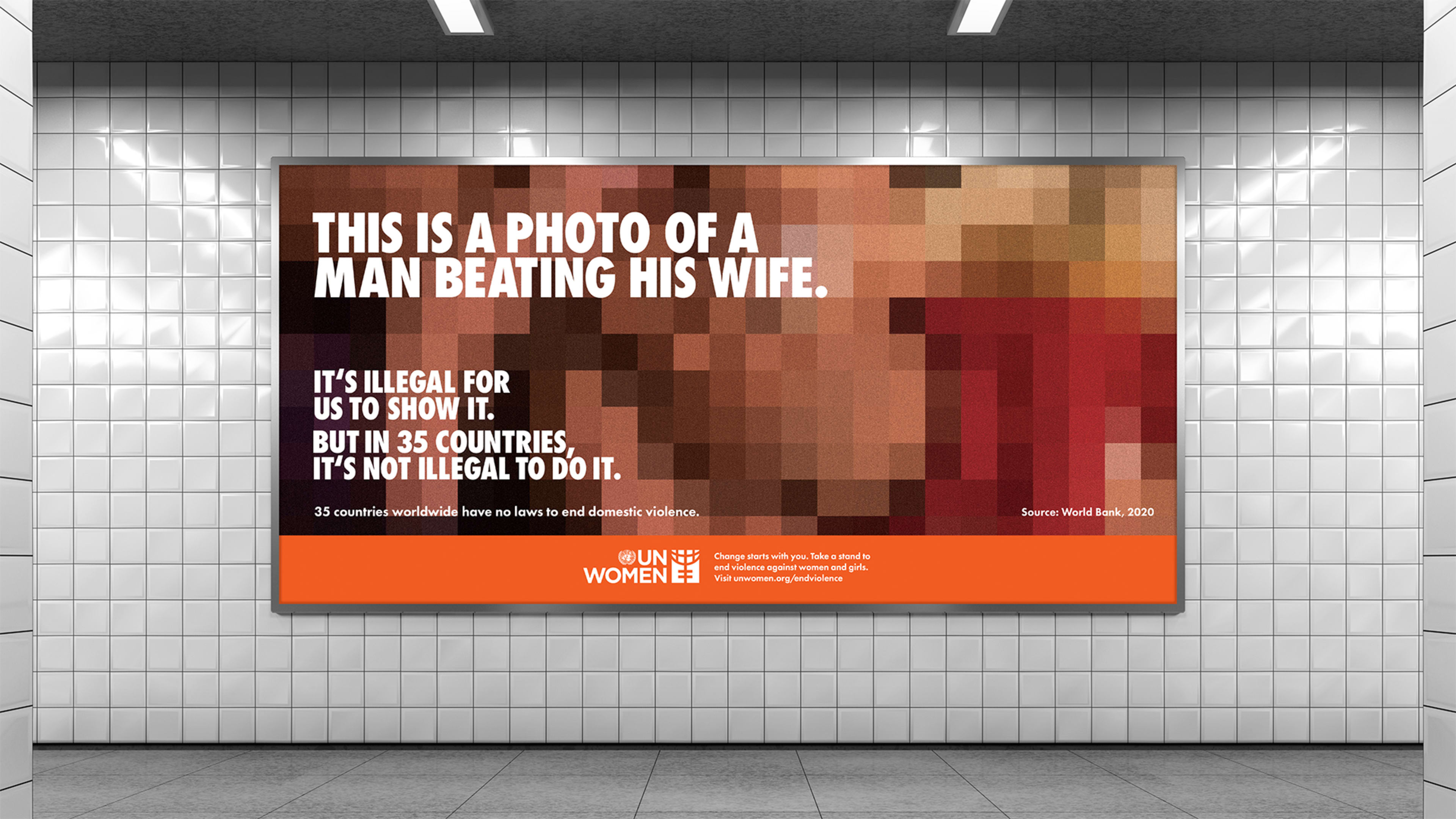A photo of a man beating his wife. A photo of female genital mutilation. A photo of a man raping his wife.
All three images would be illegal to post in public, yet all three acts are actually still legal in many countries around the world. According to the UN, more than 243 million women and girls were abused by an intimate partner in the past year, while less than 40% report it or seek help.
This new campaign for UN Women’s annual 16 Days of Activism against Gender-Based Violence campaign kicked off on November 25, the International Day for the Elimination of Violence against Women, and runs until Human Rights Day, on December 10.

Public service campaigns have to pull double duty in that they need to break through both our media-saturated attention, as well as any cause fatigue we may be feeling, particularly around issues that never seem to go away or get any better. Some organizations have found creatively innovative ways to raise awareness and snap us to attention. In 2015, Women’s Aid in the UK made an interactive billboard that depicted bruised and battered women, whose injuries began to heal as more people looked at the billboard. Last year, Refuge used the childhood game of hide-and-seek to show the tragedy of domestic violence. And in 2016, the National Centre for Domestic Violence partnered with artist Ellie Goulding to write an original composition and promote the PSA like a music video.
The fight to stem violence against women is ongoing and requires constant vigilance, never so much than amid the surge in domestic abuse seen around the world during the pandemic. Earman and her creative partner, copywriter MK Holladay, were seeing these news stories and wanted to create something to reflect how it made them feel.
“So many PSAs are these long, beautiful stories, but we wanted to really break through and get people’s attention immediately,” says Earman. “That’s how this more direct approach came about. You get all the information up front, and it’s pretty shocking when you read it.”
Once the work was done, the agency began looking for a potential partner, with UN Women at the top of its list, and it quickly became a part of its annual campaign.

“Finding that interesting way to convey it’s illegal to show, but it’s legal to do, that’s when we were like, Okay, this is not Sarah McLachlan,” says Holladay, referring to the tear-jerking 2007 ASPCA animal cruelty PSA. “The pixels are like a big red button. You just want to press it. Here, you just can’t help wanting to know what’s there, so you’re going to imagine it.”
If you’re forced to picture that reality of violence against women, then hopefully you’re equally moved to support the ongoing efforts to stop it.
Recognize your brand’s excellence by applying to this year’s Brands That Matter Awards before the final deadline, June 7.
Sign up for Brands That Matter notifications here.
